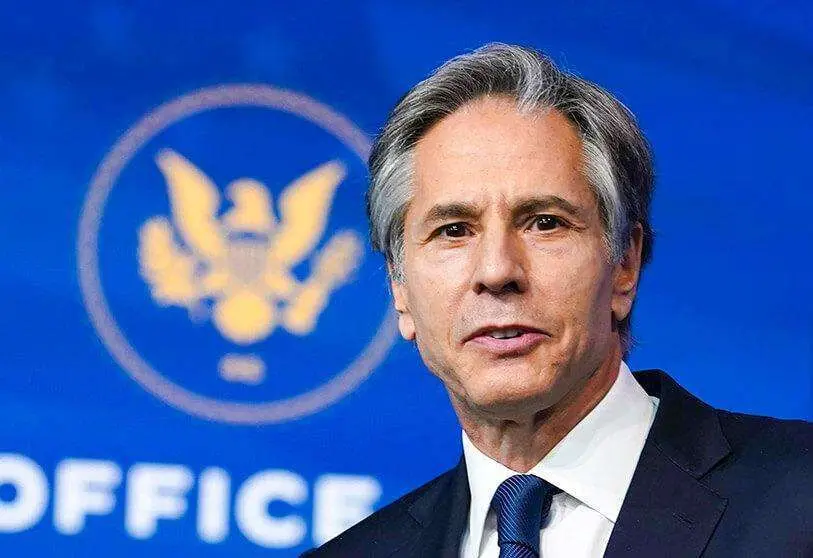No cause for optimism: Blinken dampens EU expectations for nuclear deal

It has taken little less than a week to see a change in expectations about the possibility of reaching a new nuclear deal. If at the beginning of the talks in Vienna, EU diplomat Enrique Mora said he was confident "that we can be doing important things in the coming weeks", now, Antony Blinken, US Secretary of State, assures that "the recent rhetoric does not give us much cause for optimism". Four days between one statement and another change the landscape of the most delicate negotiations since the nuclear agreement signed in 2015 was broken.
The Joint Comprehensive Plan of Action (JCPOA) seeks a renewal in the Austrian capital that could regulate Iranian uranium enrichment. This is not the only objective, but it is one of the most important. Iran's stockpile of 60 % enriched uranium has set alarm bells ringing in the international community, which sees Tehran's development of nuclear weapons just around the corner. Uranium with a purity of close to 90% is needed to be able to produce such weapons, so there is a certain margin that will continue to shrink until a new agreement is reached.

The first step is to find out whether Iran has real intentions to sit down and negotiate a new plan to regulate uranium enrichment. However, it is clear that the starting point for the talks is much worse than in 2015 since the JCPOA set the uranium purity limit at 3.67%, i.e. the Ebrahim Raisi government has made it more than 16 times more enriched. This is what makes many see these meetings in Vienna as overdue, although Secretary Blinken believes that 'it is not too late for Iran to change course'.
Reaching a meeting point will depend to a large extent on the movements of the first few days. "We're going to know very, very quickly, I think in the next day or two, whether Iran is serious or not," says Antony Blinken, who at the same time does not have a positive feeling about the initial talks: "I have to tell you, after the recent moves, the rhetoric doesn't give us much cause for optimism". A change in Iran's position was expected after the elections that brought Ebrahim Raisi into government to replace Hassan Rohani. What was not known was the extent to which it would affect Iran. It is now beginning to emerge that the change may not have been entirely favourable for these negotiations.

"What Iran cannot do is maintain the status quo of building its nuclear programme while delaying the talks. That will not happen," the US secretary of state says firmly. However, it does not appear that the US is in a sufficiently advantageous position to make demands, especially when Iran maintains the condition of lifting sanctions imposed by Washington before renegotiating the terms of a new JCPOA. The Americans' unilateral exit in 2018 with Donald Trump in the White House was the turning point that led to a systematic violation of the conditions that now, three years later, they want to recover.
Conditions that have now been put on the table by the Iranian side. Tehran's chief negotiator, Ali Bagheri, told Iranian television about Iran's proposals: "The first document outlines the Islamic Republic's point of view on the lifting of sanctions, while the second is on Iran's nuclear actions". He adds that "the other side must now examine these documents and prepare to hold negotiations with Iran based on these documents". Iran seems willing to sit down and talk, but it remains to be seen whether the US is willing to negotiate on terms set by an increasingly unpredictable Tehran.








